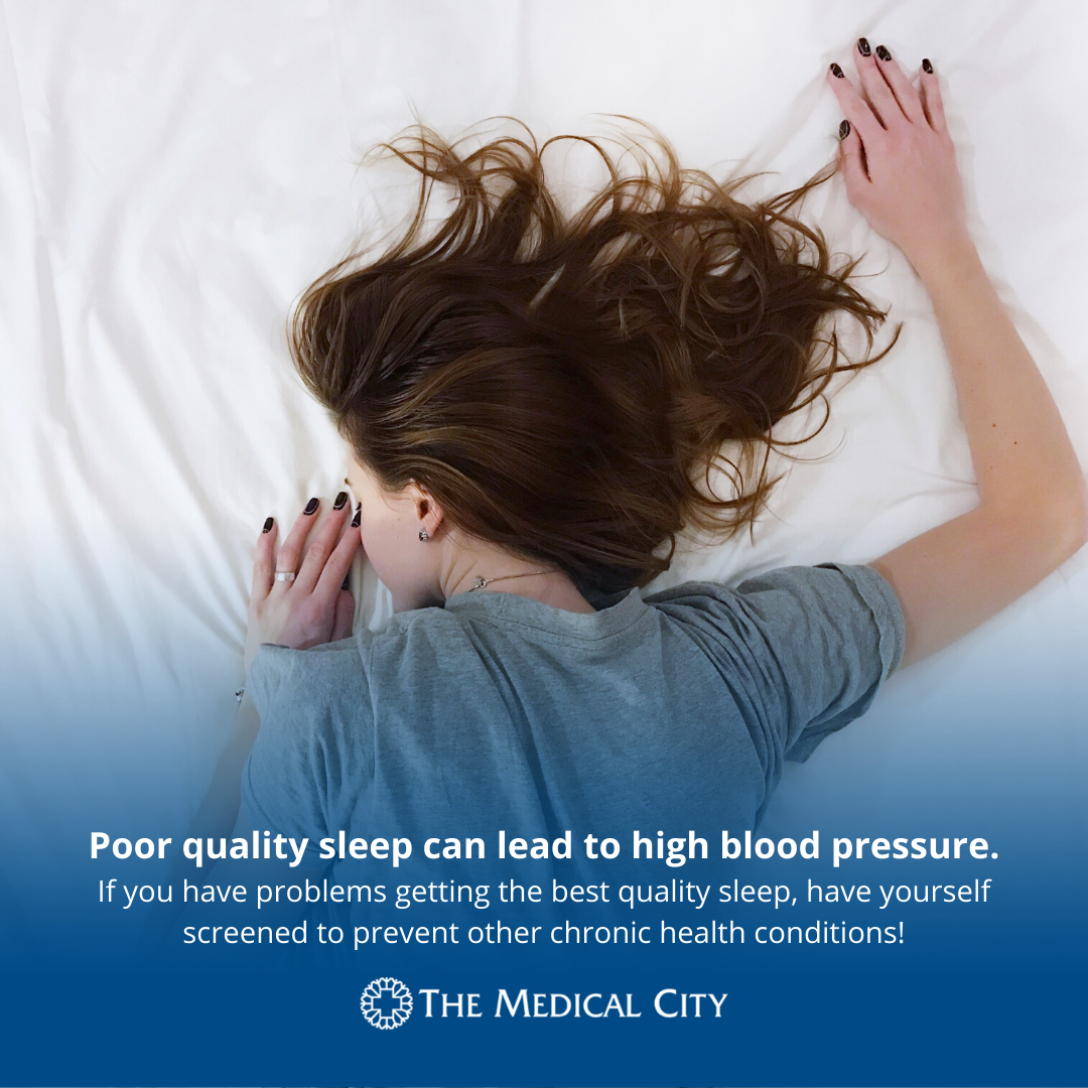Good Quality Sleep: A Bridge to Good Health

On average, humans sleep for about one-third of their life. This amount of time allows the body to rest and regenerate itself to prepare for the activities to be done upon waking. More than the number of hours we sleep, good quality sleep is essential for people to be able to stay healthy and maintain regular body function.
Sleep, along with balanced diet and regular exercise, is one of the pillars of good health.
On average, humans sleep for about one-third of their life. This amount of time allows the body to rest and regenerate itself to prepare for the activities to be done upon waking. More than the number of hours we sleep, good quality sleep is essential for people to be able to stay healthy and maintain regular body function.
With the fast-paced lifestyle of most people and the daily activities we have, most people would delay sleeping. For some, the shortened cycle is coupled with poor quality sleep which affects a person’s over-all health.
The following are common health concerns related to poor quality sleep:
- Cognitive function problems. Sleep helps the brain maintain its proper function and lack of sleep may affect alertness, learning processes, concentration, reasoning, and problem-solving.
- Chronic health concerns. Sleep disorders, sleep deprivation, and poor quality sleep can lead to chronic illnesses such as heart disease, high blood pressure, diabetes, and stroke.
- Mental health disorders. Lack of sleep is often linked to depression. In a 2007 study, it was noted that people with insomnia were five times more likely to have depression.
- Skin aging.Lack of sleep results to an increased production of cortisol which may cause a breakdown in skin collagen, the protein responsible for keeping the skin smooth and elastic.
- Weight gain. Sleep deprivation has been linked to hunger and an increase in appetite. Acting on these “hunger pangs” may lead to obesity.
To help prevent chronic sleep deprivation and the wide variety of health conditions it comes with, it is best to have a healthy bedtime routine. Here are nine proven tips that can help you achieve better sleep:
- Establish a routine sleep-wake cycle. Having a regular sleeping and waking time will help regulate the quality of your sleep. As much as possible, sleep and wake up at the same time each day.
- Limit daytime sleep. If you’re used to sleeping or taking a nap during the day, make sure you do not exceed 45 minutes so that you would have no problem sleeping at night.
- Avoid caffeine, alcoholic beverages, and smoking before bedtime. Caffeine and alcohol intake as well as smoking should be avoided at least four hours prior to bedtime so as not to have disruptions during sleep.
- Be conscious of what and how much you eat before sleeping. Avoid heavy, spicy, or sweet food at least four hours prior to your bedtime. Having a balanced diet taken at regular times each day will help regulate your body clock and allow better sleep.
- Have a regular exercise routine. Regular physical activity can help achieve deep sleep, the most physically restorative phase of sleep, as long as the physical activity is not done right before bedtime.
- Make your bedspace comfortable. Use sheets, pillows, and blankets that make you comfortable. Make sure that sheets are also crease-free to help make you more relaxed in bed.
- Regulate room temperature. Find the room temperature that will make you comfortable as you sleep and make sure the room is well-ventilated.
- Eliminate light and noise sources. Make sure that there are no noise and light sources that may distract you as you try to fall asleep. Having these distractions, including phones and television, around will make it difficult for you to sleep.
- Reserve your bed for sleep. Condition yourself to sleep in bed by not using it for other activities such as work and recreational activities.
If despite adhering to these tips you still experience poor quality sleep, you may need to be screened for sleep disorders and be treated to help you get the best possible sleep.
The Medical City’s Center for Snoring and Sleep Disorders provides services such as polysomnography, a sleep study that identifies different sleep stages. With the help of sleep specialists, measurements are interpreted and a diagnosis is made. Appropriate treatment will also be provided with the help of doctors specializing in Sleep Medicine.
For inquiries, you may contact the Center for Snoring and Sleep Disorders at 8-988-1000/8-988-7000 ext. 6236.
References:
National Institute of Health
https://www.ninds.nih.gov/Disorders/patient-caregiver-education/Understanding-sleep
WebMD
https://www.webmd.com/sleep-disorders/understanding-sleep-problems-basics
https://www.webmd.com/sleep-disorders/features/10-results-sleep-loss#1
World Sleep Society
https://worldsleepday.org/10-commandments-of-sleep-hygiene-for-adults
Sleep Health Foundation
https://www.sleephealthfoundation.org.au/pdfs/CaffeineAlcohol-0713.pdf
The Medical City Section of Sleep Medicine